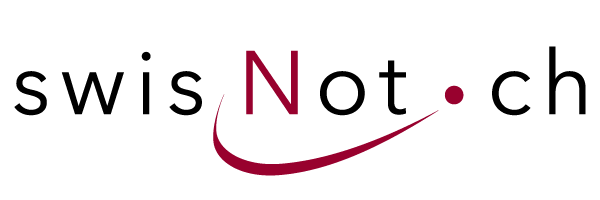The public company (SA)
Jérôme SCHÖNI, notary in Geneva, and Olivier JACOPIN, notary in St-Aubin
A public company (SA) is a legal person as set out in articles 620 et al of the Swiss Code of Obligations. It has a company name and a pre-defined share capital divided into shares. It is established with a precise goal, which is not necessarily economic. Shares may be nominative or in bearer form.
Unlike the situation of owners of individual companies, or of partners of simple or collective entities, shareholders of a public company are not personally liable for the company’s debts. These debts are guaranteed by corporate assets only. Moreover, shareholder’s names do not appear on the business register, unlike the partners of a SARL.
Incorporation of a public company
A public company (SA) is incorporated by an authenticated deed. It is therefore indispensable to consult a notary, who will draw up all the necessary documents (the incorporation deed, of course, but also the articles, requisition, etc.) in view of recording it on the business register.
A public company can be created by one or several natural or legal persons, Swiss or foreign, or by other commercial companies.
The share capital should be at least 100,000 Swiss Francs. In principle it should be completely released. However, it is possible to release from as little as twenty per cent of the nominal value of each share, with a minimum total of at least 50,000 Swiss Francs.
When the share capital is released in cash, the sum of the capital should be deposited in a Swiss bank account. The bank will issue the notary with a deposit certificate for the purpose of the signing of the incorporation deed. The released capital is only available to the company once it is recorded with the business register.
The founder also has the possibility of releasing share capital by contributions in kind (e.g. an individual company or other determined property). In this case, a contribution contract, a foundation report and a certificate by an approved auditor should be produced. The same procedure should be followed if the company takes up the assets of a shareholder or a person close to it, or intends to take them up after incorporation.
Organisation of the company
The articles, or the legal provisions if there are none, determine the way the company functions and is organised. There are three bodies:
1) The shareholder’s general meeting is the company’s supreme power. It modifies articles, appoints members to the executive board and auditing body, approves annual reports and accounts, determines how profits are distributed and fixes the dividend. The ordinary general meeting takes place every year within six months following the end of the financial year.
2) The executive board manages the company’s affairs, acts as senior management and represents the company with respect to third parties. Members of the executive board do not need to be shareholders and there is no longer a nationality barrier. However, the company should be represented by someone residing in Switzerland. A member of the executive board or a director should meet this requirement.
3) The auditing body is an independent organisation that checks the annual accounts. There is now a classification into “large” and “medium” public companies subjected to ordinary and limited auditing respectively. In certain cases, companies do not even have to audit.
Rights and obligations of shareholders
Shareholders claim their corporate rights by attending the general meeting, voting in it and taking part in the deliberations. In principle, they are entitled to share of the profits and, if applicable, share of the liquidation. Unless restricted by law or a company article, they are entitled to transfer their shares freely. They also have a preferential right to buy shares and a verification right over the company.
In general, the shareholders’ only obligation is to release the full amount of the shares purchased.
Modification of the articles
The change of company name, aim, head office, a share capital increase or reduction, the creation of dividend certificates or stake-capital as well as changes in the articles should be covered by an authenticated deed.
Winding up a public company
The general meeting can decide to wind up the company at any time. This decision should be covered by an authenticated deed. The company can also be wound up by bankruptcy procedures, judgement, merger, division or asset transfer.
If you intend to create a public company or wish to modify your existing company, swisNot notaries are there to give you advice and support you in these procedures.
Geneva and St-Aubin, 01.02.2011




